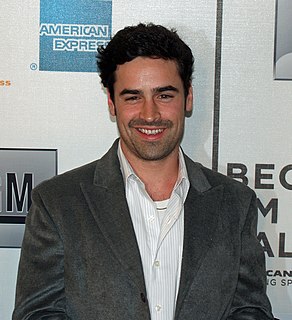A Quote by Will Forte
I'm a very bad impersonator so I can't even remember if I've ever done a sports person. I mean, I think I was Bruce Jenner once but I don't think I said anything in the sketch. I was just sitting there in a like a bronze tracksuit. No dialogue. They don't trust me with dialogue.
Related Quotes
I don't think all comedy should be mindless. Have something that's thoughtful. Maybe some things are tongue-in-cheek; maybe some things are very direct. I like that people have to think about things. That excites me. Because if you say certain things, it starts a dialogue. Even if you disagree, it's still a dialogue.
When I go to the cinema, I want to have a cinematic experience. Some people ignore the sound and you end up seeing something you might see on television and it doesn't explore the form. Sound is the other picture. When you show people a rough cut without the sound mix they are often really surprised. Sound creates a completely new world. With dialogue, people say a lot of things they don't mean. I like dialogue when it's used in a way when the body language says the complete opposite. But I love great dialogue I think expositional dialogue is quite crass and not like real life.
I think when I was a young person, there was just kind of - there was very little dialogue about it. And there was just kind of one way to be gay, right? You saw very effeminate guys. You saw very butch women. And there was no kind of in-between. And there was no - you know, there wasn't anything in the media. There wasn't anything on television.
Rather than make claims of final theories, perhaps we should focus on our ever-continuing dialogue with the universe. It is the dialogue that matters most, not its imagined end. It is the sacred act of inquiry wherein we gently trace the experienced outlines of an ever-greater whole. It is the dialogue that lets the brilliance of the diamond’s infinite facets shine clearly. It is the dialogue that instills within us a power and capacity that is, and always has been, saturated with meaning.
It's an ethical pact I've made with myself and with the reader - not to invent. And when I can't remember, I say I can't remember. I'm just appalled by the memoirs published by people who regurgitate dialogue, conversations from when they were small children, and they go on for three or four pages. I can't even remember what we said to each other ten minutes ago! How can I remember what was said sixty years ago? It's not possible.



































